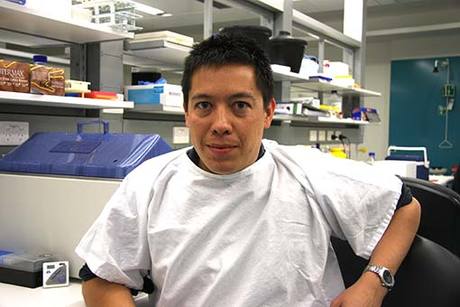Newcastle Uni researchers target bowel disease

Australian scientists have shown the potential for a new therapy for inflammatory bowel diseases (IBDs).
Researchers from the University of Newcastle have demonstrated that a type of drug known as a prolyl hydroxylase inhibitor (PHDi) can trick gut tissue into triggering the intestine’s healing mechanisms.
The research - conducted in collaboration with the USA’s University of Colorado and biopharmaceutical company Aerpio Therapeutics - has been published in the latest edition of Mucosal Immunology.
Lead researcher Dr Simon Keely said PHDi drugs have the potential to accelerate the healing process for IBDs including Crohn’s disease and ulcerative colitis.
“With inflammatory bowel disease the barrier that stops bacteria and toxins getting through is broken; this drug effectively closes the barrier while also making the gut lining more resistant to attack,” he said.
“We found in our modelling that it activates proteins known as integrins, which allow the damaged gut lining to reseal and eventually close.”
IBD patients often experience severe abdominal pain and may need to use the toilet as often as 25 times per day. The diseases affect an estimated 75,000 people in Australia alone.
While IBD is rarely fatal once treated, there is no known cure, and about three in four patients will require surgery to remove sections of their intestine that have been irreparably scarred by inflammation.
“As well as the major impact on patient quality of life, IBD has a disproportional impact on healthcare costs because endoscopies and medication are relatively expensive,” Keely said.
“The 75,000 known patients account for around $2.7 billion in annual healthcare costs - that’s $36,000 per person, which includes work absenteeism, reduced productivity and actual costs.”
The research team is now recruiting for a clinical study at John Hunter Hospital to help understand how tissues adapt to inflammation, and why some people heal while others do not.
“Basically we want to create a map of the healing process to see when the level of integrin protein is at its highest,” Keely said. “We are gradually figuring out how PHDi drugs work and these therapies may not be too far from clinical trials.”
Three-in-one pill could transform hypertension treatment
Australian research has produced impressive Phase III clinical trial results for an innovative...
AI-designed DNA switches flip genes on and off
The work creates the opportunity to turn the expression of a gene up or down in just one tissue...
Drug delays tumour growth in models of children's liver cancer
A new drug has been shown to delay the growth of tumours and improve survival in hepatoblastoma,...




